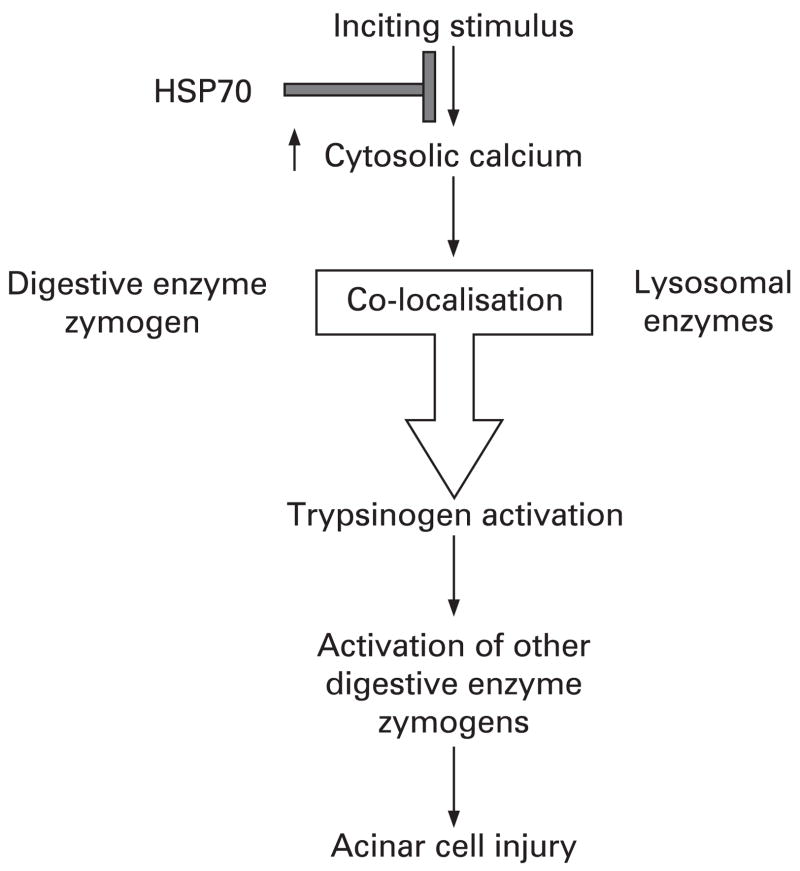Figure 3.
A schematic diagram of the possible mechanism by which heat shock protein 70 (HSP70) protects against acinar cell injury in pancreatitis. The events that initiate pancreatitis also increase cytosolic calcium in acinar cells, which in turn causes lysosomes and digestive enzyme zymogen to co-localise. These events bring the inactive trypsinogen into contact with cathepsin B, which then activates trypsinogen. Active trypsin in turn activates other digestive enzyme zymogens, and those active enzymes cause acinar cell injury. HSP70 possibly protects the acinar cell from injury in pancreatitis by attenuating cytosolic calcium increase and thus abrogating all the downstream events in the injury pathway.

